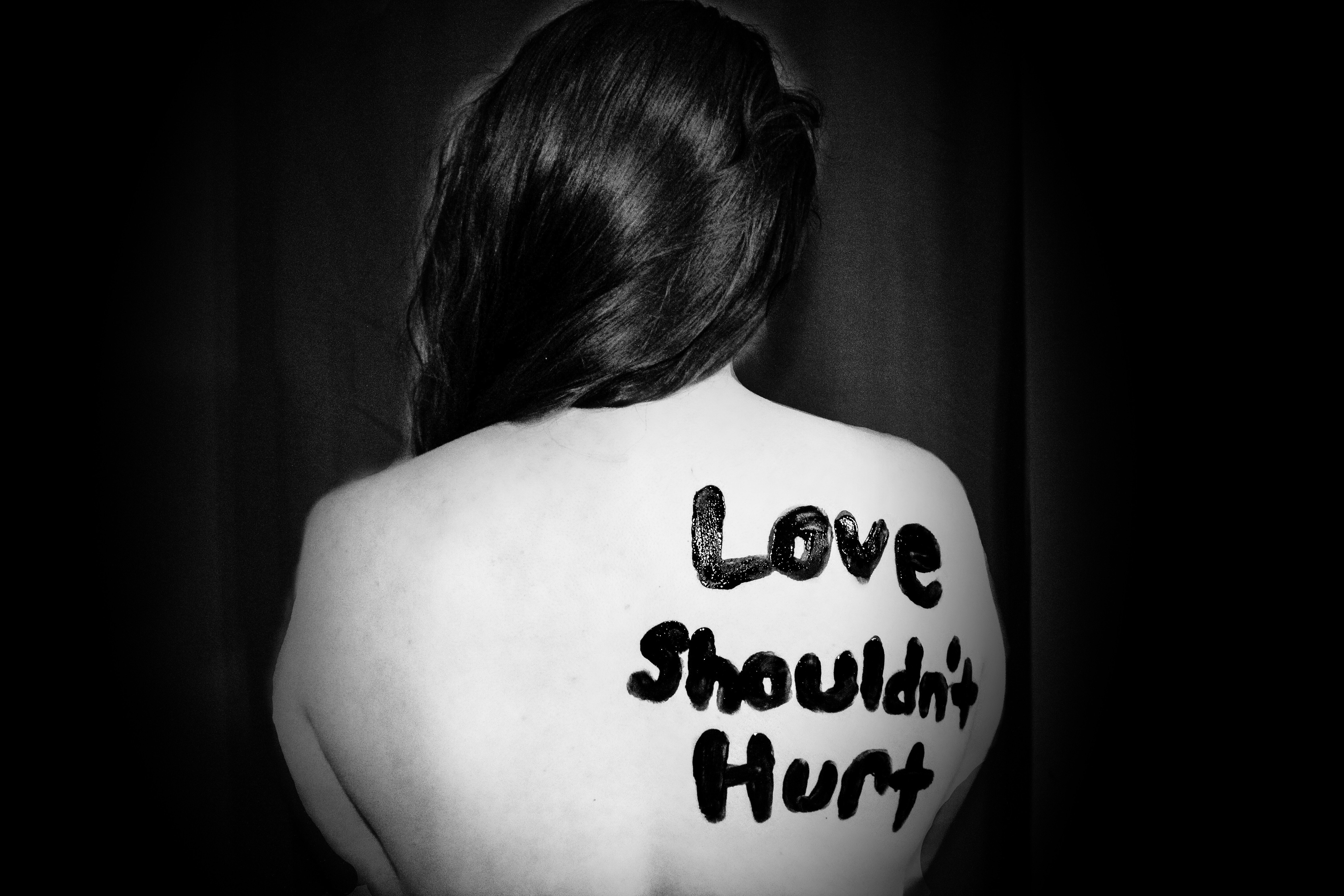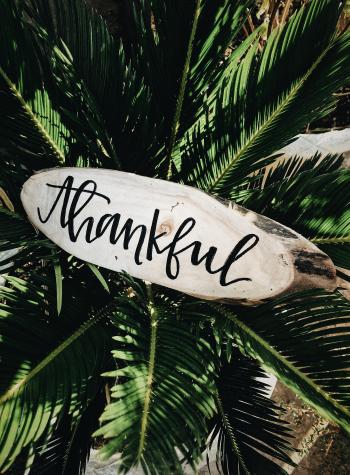Users Who Spiked

THE DAY YOU LEARN WHAT DOMESTIC VIOLENCE IS
Private Notes
Private Notes
Notes
While reading up on domestic violence to better understand my own experiences, I came across an article in Psychology Today in which Ph.D. Sherry Hamby broke down the stereotype that “battered women keep domestic violence a secret.” Hamby reveals that “most battered women disclose domestic violence,” but rarely receive the help they need. To emphasize how many women are considered “most,” I want to stress that Hamby states “about 80% to 90% of victims in many studies.”
How shocking is it that more than a majority of victims tell someone!
How shocking is it that they are NOT given help!
Why is that?
As a kid, I knew of “domestic violence” but never actually understood what it was. I thought I did. I knew it was a form of physical abuse such as when a husband hit his wife. I never heard about it being the other way around. As I got older, I learned men can be victims of domestic abuse too. No one told me though. I witnessed it for myself. I also realized a pattern of verbal abuse constitutes domestic violence. Then, there is aggravated assault such as when someone emotionally abuses you and throws something causing you to feel threatened. These are all examples of domestic abuse.
I wonder, was my limited understanding of domestic violence as a child and teenager the result of a societal symptom to hide domestic violence?
Whether we are talking about failing to give victims the help they need when they open up or we are questioning why women hide their bruises with makeup, I cannot help but think this does not happen without negligence.
The negligence of society to recognize domestic violence as something that should not be ignored.
The negligence of the adults and authority figures making up society to recognize it or to not turn a blind eye.
Negligence to educate young people about domestic violence, so they can recognize it if it happens to them or if they witness it happening to someone else.
Negligence to teach people it is not acceptable to commit acts of domestic violence, so they learn the appropriate way to behave.
Negligence to teach people how to handle their emotions (especially anger), so they can be given the proper tools on building strong relationships through healthy communication.
Negligence to teach people how to not just recognize but to also handle the threat physically, emotionally, and legally.
Finding someone negligent requires some sort of duty on their part that they owe to the victims of domestic violence.
Does society have such a duty? If not, who has the duty?
And what is the duty exactly?
Is it to educate on the definition of domestic violence?
Is it to give young people the tools to handle such a situation psychologically, physically, and/or physically?
The bottom line is why do most victims not get the help they need when they disclose their abuse?
Domestic violence is a messy situation that requires a multi-layered response.
Domestic violence involves complicated emotions on part of the victim as well as the perpetrator. It may seem easy to deal with these emotions and situations on paper, but no one ever tells you how to handle the “love” you feel. No one ever told me. I had to learn this myself.
Looking back, I wish I learned as a young woman in high school how to recognize the signs of domestic violence and how to deal with them in real life. It is not easy to just say “No” and walk away when there are usually factors that keep a preparator in your life whether it is a parent, family member, roommate, or romantic partner.
Whether you’re a child, a teenager, or an adult, no one tells you how to respond or deal with domestic violence.
They may tell you to call the police but that sometimes makes it worse. How do you protect yourself if they make do not get arrested, or if they do get arrested and make bail?
When you are the victim of your spouse and you have children, there are options available to you. Otherwise, you must fend for yourself I have found.
On top of it, there is a lot no one tells you.
No one tells you how to deal with the reality that there are good days and bad days.
No one teaches you how to rationalize that any type of domestic violence is not outweighed by the good that person does or the days when they are treating you as they should.
No one explains the cycle of abuse to you in terms that you can relate to your reality.
No one tells you there is no such thing as unconditional love.
No one taught you that to walk away does not necessarily make that love go away.
No one tells you that you may always love that person for the good that you saw in them or merely just because they are your blood.
Does it take being a victim to learn the truth about what domestic violence really is?
I cannot speak for anyone else. It took me being a victim of domestic violence to understand the various ways in which anyone can become a victim of domestic violence. No one should have to become a victim to learn this.
I never kept my abuse a secret. I told friends who comforted me. They did exactly what I needed them to. I needed someone to listen to me. I needed someone to give me a place to go when things got bad. When they did, I knew who to call.
I also knew who not to call. Even after I disclosed what happened, I was given the impression they thought it was not their business or they did not want to get involved. Some people believe such things should be kept quiet. When you go against the norm, you are outcasted and the victimization continues.
Then you find yourself living with the domestic violence for the sake of keeping other loved ones in your life. You may even find yourself believing people that you are exaggerating, or you deserved it. I sure did.
You cannot keep domestic violence quiet, or else those guilty of domestic violence will simply continue the cycle of abuse.
Even though I know I am safe today from physical and emotional abuse, the scars remain. What keeps me going are those that supported me along the way, and knowing that when I need to talk, they will help. Even though there are some who did not help me, I was fortunate to have a few who did. Those are the people I learned I should have in my life. They were the ones who were willing to listen and to see the truth. They were willing to recognize that what I was experiencing domestic violence.
I can not help but feel others thought it was merely easier to deny the reality I was living to relieve themselves of any responsibility to help. Sometimes, listening is all the help you can give and that is okay. It can be unnerving to encounter any domestic violence situation even when it is happening to someone else.
In society, there is still the attitude that "it is none of our business" when matters concern the private lives of a household. Even members of an extended family take on this approach which is why domestic violence remains a significant problem in American society. I wonder if it is the need to rationalize not helping someone in need that encourages society and individuals to blame the victim for their circumstances. Is it possible for society to truly understand what domestic violence if these attitudes continue?
Is it possible for children to grow up with an honest understanding of what behavior constitutes domestic violence? Or will the day they become a victim be the day they learn what it really means?
Will they recognize it as domestic behavior? Will they see the warning signs? Will they tell someone to only be told: "that is none of my business?" Will they tell someone who will blame them for what happened?
When will be the day you learn what domestic violence is? Hopefully, before it is too late.
Photo by Sydney Sims on Unsplash
References:
Sherry Hamby Ph.D. May 19, 2014. “Domestic Violence: Learning to See Past the Stereotypes. Do you know the truth about domestic violence?” (https://www.psychologytoday.com/us/blog/the-web-violence/201405/domestic-violence-learning-see-past-the-stereotypes)
Comments
Please login to post comments on this story
-
Very important topic! Great piece!
-
Our society has almost always (in the past) held a number of topics as “taboo”, the, ‘don’t talk about it’ topics. Those generally included, alcoholism, infidelity, divorce and abuse. The big 4. For me, the question is, why are they taboo subjects? It has to lie somewhere in the realm of, it’s personal, it’s nobody else’s business. Our society was built around keeping family issues private. Back in the day no one aired the family’s dirty laundry. Of course word always got out at some point. The neighbor’s daughter that went to visit her aunt in the country for nine months, the son that “had” to join the army or go to jail, word eventually leaked out, perhaps driving the need to keep things even more quiet. Faults, frailties, failings are never something one is proud to bring up, especially back then. Domestic violence was seen as something that just happened. The husband comes home, his boss is really riding him at work, he screwed up his quarterly report, the car needs a new transmission, no wonder he went off and gave his wife the backhand. That was often the literal excuse people came up with. Even in my lifetime, I knew a girl, her ex-boyfriend had abused her. So what did her mom say, who grew up in the old school mentality? She asked, “Well, what did you do to make him hit you?” WHAT!!?? That’s how you respond to your daughter being beaten? Unfortunately, even though times and laws change, often our thinking is slower to catch up. Yes, abuse can be perpetuated upon women and men, but what man would ever want to admit his female partner hits him? Male egos are often easily damaged. We still live in a male dominated culture, I’m afraid that isn’t changing anytime soon. You ask, does it take being the victim of domestic violence to understand what it is? So what is it? Is the answer cut and dry? Is it merely, the violent or aggressive behavior within the home involving the abuse of a spouse or partner. That is the definition. But is it truly what domestic violence is? It must involve more than that. Isn’t there something of a clouding of the violence due to the nature of there being an intimate relationship in the first place? Are we able to recognize abuse no matter how great or slight it is the second it occurs? Doesn’t our love, our feelings towards the abuser cause us not to recognize abuse initially? After all, he (or she) loves me, they would never do anything to hurt me…right? There is an almost unwillingness to even think our abuser might be capable of such a thing, even when putting makeup on to hide the black eye. It’s just this one time, right? Maybe we gloss over it, don’t see the warning signs before it happens, there are almost always warning signs if we really remove our bias and look openly at our partner. But we love, we put up with, we excuse, even defend our abusers. I’m not sure there is an easy ‘why’ here. Every case of abuse, with all their similarities, often have vastly different reason for occurring. Fear, used as a weapon by an abuser and as something the victim feels, plays big into the situation. If the abuser can keep you in fear, they have the upper hand. Dependency, desire for love, and so much more all play a factor into why abuse happens and why victims often stay with their abusers. I think the law, the police, can have a tough time dealing with domestic violence. It is the number one most dangerous call to respond to. Until we stand up and say, violence period will not be tolerated, and strictly enforce domestic violence laws, nothing will change. If the abuser can apologize their way out of it, plead, say it will never happen again, go to anger management to avoid jail, and having the victim remove their complaint, thus voiding the charge, there is little incentive not to lose your cool. Clearly society doesn’t care enough to step in, so there will remain this ebbing tide, this abyss of inaction that will plague relationships until we say enough is enough! How many bruises have to occur before we tackle this issue head on and come up with a solution…?? How many bruises??





































